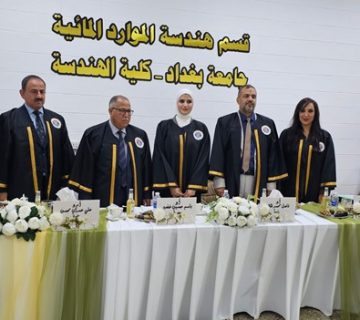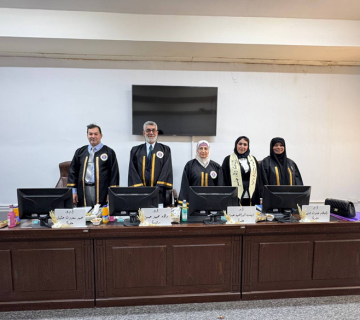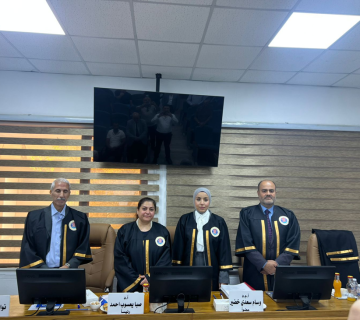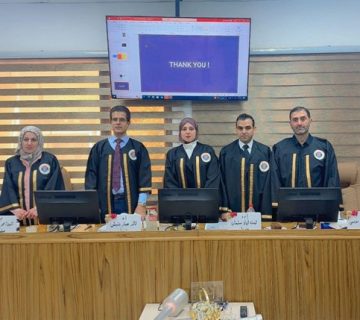It was conducted on Tuesday, 2/9/2025, in the Dr. Munther Al-Droubi Hall in the mechanical Engineering Department. the discussion of the master’s thesis of the student Ayat Deah Hamdan, which is tagged:
” Implementation of Swarm Intelligence Algorithm in Inventory Control Practices within the Supply Chain “.
The discussion committee consisted of names listed below:
1- Prof. Dr. Hussein Salem Kaitan (Chairman)
2- Asst. Prof. Dr. Ahmed Zaidan Mohammed (Member)
3- Lec. Dr. Ban Baqir Jawad (Member)
4- Asst. Prof. Dr. Iman Qasim Abdul-Hussein (Supervisor)
his study investigates inventory management practices in the electricity transmission and distribution sector, focusing on minimizing total inventory costs and improving order and storage efficiency. Data from twenty electrical products were analyzed using the Economic Order Quantity (EOQ) model, considering all inventory-related costs (ordering, storage, transportation, and inspection) and reorder points. Various optimization techniques were applied, including the classical Particle Swarm Optimization (CPSO), modified PSO algorithms (MPSO and IMPSO), and Artificial Neural Networks (ANN), with a hybrid IMPSO-ANN approach for enhanced cost reduction.
The results indicated that the total inventory cost using conventional methods amounted to approximately $7,486,305. The IMPSO (Nonlinear Inertia Weight) algorithm significantly reduced the cost to $2,533,200, outperforming CPSO ($11,069,000), linear-weight MPSO ($8,266,400), and standard MPSO ($3,596,900). The hybrid IMPSO-ANN approach demonstrated even better convergence and efficiency in minimizing total inventory costs.
Based on these findings, it is recommended to adopt the IMPSO-ANN method for effective inventory management, continuously update inventory data to improve model accuracy, optimize reorder points and EOQ quantities, train staff in AI and PSO-based optimization, and expand the application of these methods across other products and warehouses to achieve sustainable cost reduction.
After the scientific discussion by the members of the discussion committee, the researcher received a rating of (excellent).








